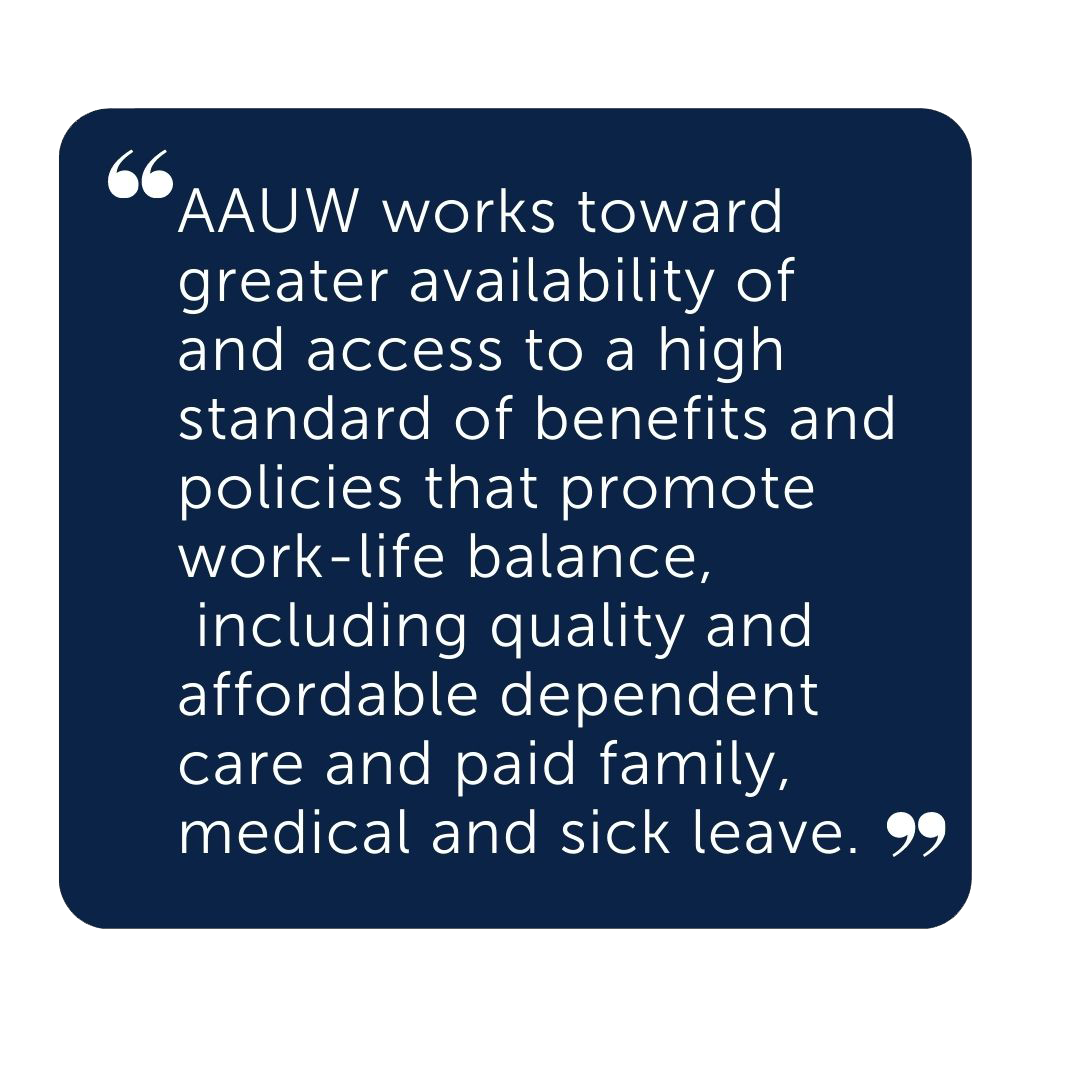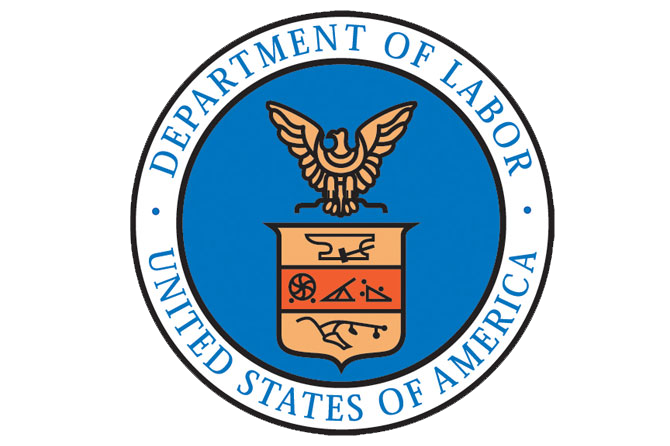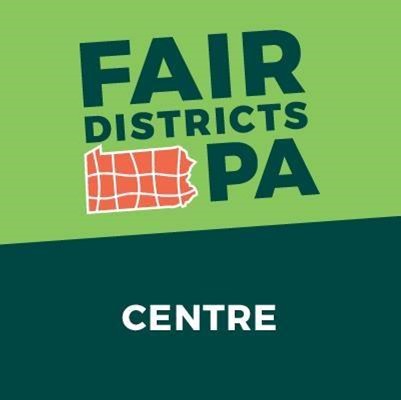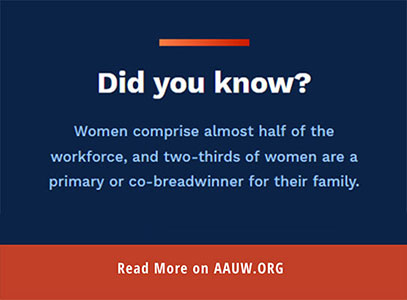Workplace & Economic Equity
Paid Family Leave
Unlike the majority of developed countries worldwide, the United States does not guarantee paid annual leave, paid time off for illness or family care, or paid parental leave. Without these policies, balancing the responsibilities of work and family can be difficult for employees—negatively impacting productivity, making recovery from major illnesses or injuries difficult, and in some cases inhibiting the healthy development of children. For the millions of Americans without paid sick days, a decision to stay home to care for a sick child or family member could jeopardize their job or family income.
AAUW is a nonpartisan organization—but nonpartisan does not mean “non-political.” The 2021-2023 Public Policy Priorities call for the availability of and access to quality paid family, medical and sick leave.
The public policy team engages in many efforts on this key issue, including but not limited to:
- Working in coalition with other gender equity organizations, including the National Work and Family Coalition and Paid Leave Legislative Working Group.
- Mobilizing AAUW advocates and members through targeted calls to action on important legislation, like the FAMILY Act and Healthy Families Act.
- Engaging directly with elected leaders and the public through calls, letters to political offices, and comments and testimony in hearings.
- Providing voter education resources on key equity issues to consider during elections and offering information on how elected officials have voted in the past (more about this and Get Out the Vote guides at the AAUW Action Fund).

Paid Family, Medical Leave & Sick Days
At some point, most workers will need time away from work to deal with a serious personal or family illness or to care for a new child. Unfortunately, only 23% of those working for employers with more than 500 employees have access to paid family leave through their employer; and only 9% of those working for employers with under 100 employees do. Among the lowest-wage workers, many of whom cannot afford to lose income by taking time off work, only 7% have access to paid family leave. Without access to paid leave, workers, especially women and mothers, face the continuing economic disadvantage of lost wages and are forced to prematurely return to work.
More: Where We Stand: Paid Leave

While the Family and Medical Leave Act (FMLA) of 1993, which provides job-protected, unpaid leave, was an important first step, its promise remains out of reach for many. FMLA fails to cover about 40% of workers, including those at companies with fewer than 50 employees, those who have been with their employer for less than a year, and those who have not met the required number of annual hours. Even when covered under FMLA, many workers cannot afford to take unpaid leave without endangering their economic security.
Today, only 60% of working women have some access to paid sick days and nearly 40% of mothers say they are solely responsible for staying home from work with sick children, compared with only 3% of fathers. Women disproportionately bear the economic cost of taking children or elderly family members to the doctor. Yet, many women delay seeking health care for themselves because they cannot take time off work, affecting their capacities as employees and primary caregivers.
Pennsylvania Redistricting Reform
We endorse the work of Fair Districts PA and its affiliate, Fair Districts Centre County, in advocating for non-partisan methods of redrawing legislative district lines and advocating for rules in each chamber that allow bills with bipartisan support to have a vote. Our stance is that elections should represent the will of the electorate by providing voters with meaningful choices that are not manipulated by politicians.
The present campaign by Fair Districts is called Fix Harrisburg. It centers around the Legislative Rules. The rules are established at the beginning of each new session, usually on the first day after election of the speaker and voted on with very little input from rank-and-file members or constituents. This was true for the Pennsylvania Senate this year. The Speaker of the Pennsylvania House of Representatives (in February, Representative Rozzi) held a listening tour of PA regarding the rules enabling input from the people of PA.
Fair Districts is advocating for rules that 1) allow bills with bipartisan support to be guaranteed a vote in committee, 2) bills voted out of committee with bipartisan support must be guaranteed a vote on the chamber floor and 3) bills passed in one chamber with bipartisan support should be given consideration in the other chamber.
The House Rules for the present legislative session were an improvement but more changes are needed. There were no rules changes in the Senate. We will be watching to see if the changes mean more bills with bipartisan support are being voted on by both chambers.
Learn more: www.fairdistrictspa.com


Start Smart & Work Start Programs
AAUW offers online programs to enable women to effectively negotiate for salaries and reflect their skills and education. Both are available at no charge.

